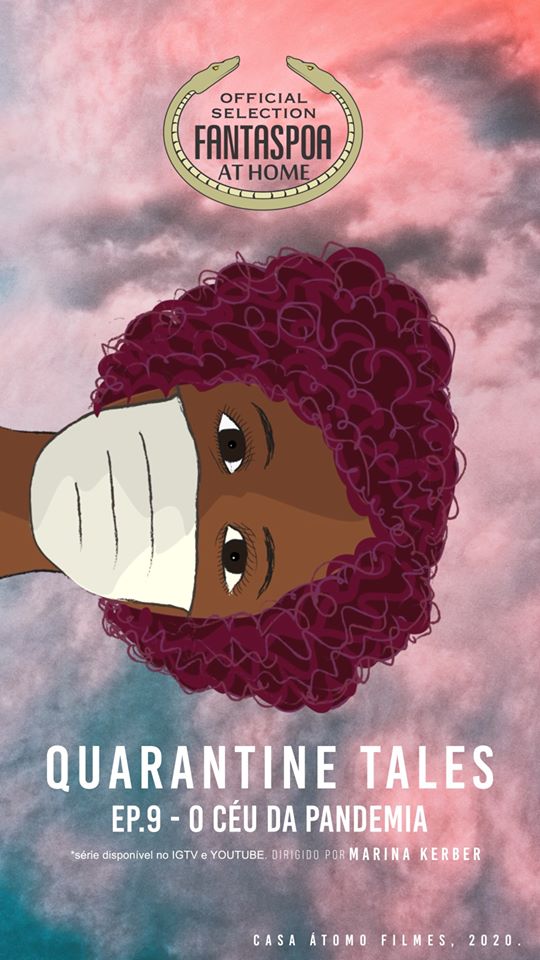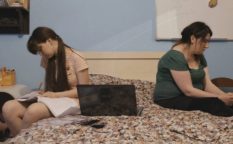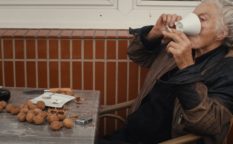It’s The End of the World as we know
Brazilian short films made under lockdown
Brazilian festival Fantaspoa at Home has an intriguing selection of genre shorts made under lockdown.
As with many festivals across the world, the Fantaspoa film festival in Brazil has been forced to postpone its usual activities. Now eyeing an Autumn slot, instead of its traditional May timing, the genre festival has decided to keep itself busy during its enforced hiatus. While many postponed festivals have moved their programmes online, Fantaspoa has taken a more sideways approach with Fantaspoa at Home (https://www.fantaspoaathome.com/?lang=en). Alongside a selection of features that have screened at the festival over its previous 15 years, it plays host to a number of brand new shorts that have all been made under the current Covid-19 lockdown. Of particular interest are the films in the National Competition. They not only show a remarkable surfeit of invention in the face of scant resources but also provide a revealing insight into a country dealing with a divided society and an inadequate governmental response to the situation.
Given that Fantaspoa is a genre festival, many of the films are variations on well-worn tropes of horror, fantasy and sci-fi. But these are often clever reconfigurations of said tropes. Sometimes She Comes Back [Às Vezes Ela Volta] (Dir Matheus Maltempi) is an extremely effective take on the Zombie film which utilises varying forms of social media – What’s App, Facebook etc – to tell its story. While this technique has been used before (with ‘computer screen films’ being their own small cinematic sub-genre, with films such as Walter Woodman & Patrick Cederberg’s Noah and horror feature Unfriended perhaps being the most obvious examples) it still feels fresh and exciting here. It’s a piece of remarkable narrative expediency: tight, lean and effective and it provides some genuinely creepy moments. When the film festival circuit jolts back into life, this could find a popular home on the genre festival circuit.

Given the circumstances of production it’s unsurprising that ‘computer screen’ films are a popular form of narrative choice amongst the selected films. It’s also unsurprising that genre filmmakers are unable to resist the urge to compare the current crisis to a zombie apocalypse. Quarentena Sem Fim (Dir.Fabrício Bittar) cleverly mixes relationship drama with apocalyptic revelations in another lean yet rewarding short. Another piece that examines the trauma of long distance relationships under lockdown – alongside a genre bent – is Pra Ficar Perto (Dir. Lucas dos Reis). Here the zombie theme is replaced by more supernatural overtones, with another effective use of social media messaging used to drip feed the audience information in a way that creates moments of genuine tension.
While there are a myriad of influences throughout the shorts on offer, many of which the films wear on their sleeve, there is little playfulness in which the filmmakers indulge. It’s perhaps a reflection of the current situation that an air of the unknown and a genuine sense of fear become a natural state of living in the modern world. However, there are a few glorious exceptions to this rule. These include the gleefully stupid Pique Esconde Macabro (Dir. Julio Napoli) in which a child’s doll comes to life. A self-proclaimed homage to the likes of Romero, this has everything you’d expect to happen – creepy child’s doll comes to life, tries to kill the house owner – done in such an OTT way that you can’t help smile. From the little squeaks and moans of the satanic toy (obviously being manipulated off screen by an errant hand) to the silly conclusion, it’s tremendous fun all the way.

Also OTT is Estúpidemia (Dir. Junior Larethian) in which a couple are torn apart when one becomes infected via the internet. Instead of becoming a zombie, our infected protagonist spouts slogans decrying ‘commies’ and the fact that Corona is nothing more than a conspiracy. His girlfriend must take drastic action to stop his venom from spreading. The film is of course a direct attack on Brazillian leader Jair Bolsonaro, his delusional far right beliefs and his handling of the Covid-19 crisis (which amounts to pretending that there’s nothing wrong). There’s a certain amount of catharsis as our female hero beats the hell out of her diseased boyfriend yet the ending – on which a bloodied hand makes a ‘finger gun’ in the style of Bolsonaro – suggests a certain world weariness and grim inevitability of Bolsonaro’s followers and their beliefs refusing to die out. While the film has a certain amateurish genre charm to it, there’s also a real sense of shouting into the abyss: the final line of “Shit fascist.” is both a curse and a lament.
Bolsonaro is also alluded to in more serious fare such as Pandemic Tales [O Céu da Pandemia] (Dir. Marina Kerber) which is ostensibly a documentary essay which eschews genre. Here our protagonist muses on life under lockdown, talks to her friends on the occasion of her birthday and listens to the conflicting opinions – a world full of noise even when people are apart. At one point chants of ‘Bolsonaro Get Out!’ ring through empty streets: the ghosts of progress trying to leave their current limbo. With a touch of impressive animation, that gives everything an air of magical realism – reflecting the feelings of many under lockdown – the film is an impressive affair. Darker is Disneyloka 2093, a future-set video diary in which the Covid 26, 28 and 33 pandemics have devastated the world. With a 16mm aesthetic, the film is a lament for a world past and a collection of yearnings for those things that have disappeared – from old films to a way of life. It’s mix of despair and nostalgia seems resonant with today’s world with a feeling that things have regressed rather than progressed.
There will undoubtedly be many more shorts produced under lockdown (for example, the Thessaloniki Film Festival has commissioned a series of shorts from an assortment of arthouse directors) but the Fantaspoa at Home is a fascinating snapshot of a country coming to terms with crises old and new as well as showcasing some innovative genre work done under the most exceptional of circumstances.
You can vote for the films in the Fantaspoa at Home (https://www.fantaspoaathome.com/?lang=en) competition until May 10th.
















